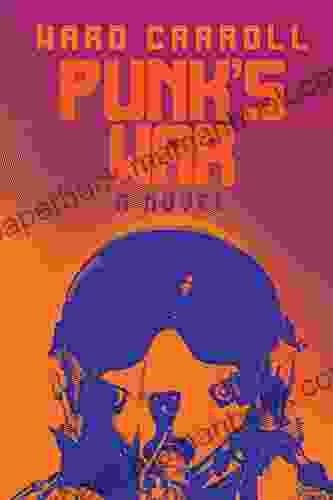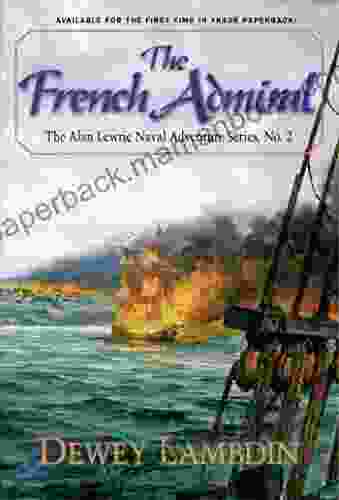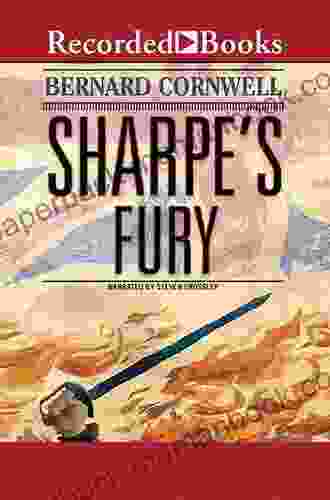Richard Sharpe and the Battle of Barrosa, March 1811: A Triumph of British Resolve in the Peninsular War

The Battle of Barrosa, fought on March 5, 1811, stands as a testament to the unwavering courage and fighting spirit of the British Army during the Peninsular War. In the face of overwhelming odds, a small British force, led by the legendary rifleman and guerrilla warfare expert Richard Sharpe, triumphed over a far larger French army, securing a significant victory that bolstered British morale and played a crucial role in the ultimate defeat of Napoleon Bonaparte.
The Peninsular War: A Conflict for Control of the Iberian Peninsula
To understand the significance of the Battle of Barrosa, it is essential to provide some context on the Peninsular War. The conflict, which lasted from 1808 to 1814, was a brutal struggle for control of the Iberian Peninsula, pitting the French Empire, led by Napoleon Bonaparte, against a coalition of forces including Great Britain, Spain, and Portugal.
4.6 out of 5
| Language | : | English |
| File size | : | 903 KB |
| Text-to-Speech | : | Enabled |
| Screen Reader | : | Supported |
| Enhanced typesetting | : | Enabled |
| Word Wise | : | Enabled |
| Print length | : | 352 pages |
Napoleon's invasion of Spain in 1808 sparked an uprising by the Spanish population, supported by British troops under the command of Sir Arthur Wellesley, the future Duke of Wellington. The war was characterized by fierce fighting, with both sides committing atrocities against civilians and prisoners of war.
Richard Sharpe: A Legendary Rifleman and Guerrilla Warfare Expert
Among the British soldiers who fought in the Peninsular War, few were as renowned as Richard Sharpe. A fictional character created by Bernard Cornwell, Sharpe was an Irishman who joined the British Army as a private and quickly rose through the ranks due to his exceptional marksmanship and tactical acumen.
Sharpe's reputation as a skilled rifleman was unmatched, and he was often tasked with leading dangerous reconnaissance missions and guerrilla warfare operations. His ability to outmaneuver and outfight the French in close quarters made him a formidable opponent, feared by the enemy and respected by his comrades.
The Prelude to the Battle of Barrosa
In early 1811, a British expeditionary force led by Lieutenant-General Sir Thomas Graham landed in southern Spain with the objective of capturing Cádiz, a major port city held by the French. The British force, numbering around 12,000 men, was tasked with dislodging a French garrison of approximately 10,000 soldiers under the command of General Claude-Victor Perrin.
As the British advanced towards Cádiz, they encountered the French army at Barrosa, a small village located a few miles from the city. The French position was formidable, with the village situated on high ground and protected by a series of fortifications. The British were significantly outnumbered and outgunned, with the French possessing a superior number of cavalry and artillery.
The Battle of Barrosa: A David vs. Goliath Struggle
On March 5, 1811, the Battle of Barrosa commenced with a fierce artillery barrage from the French. Undeterred, the British infantry, supported by a small number of cavalry, charged uphill towards the French positions. The fighting was intense, with the British facing heavy casualties as they attempted to break through the French lines.
In the midst of the chaos, Richard Sharpe led a detachment of riflemen in a flanking maneuver, targeting French artillery positions and harassing their infantry. Sharpe's sharpshooters wreaked havoc on the French, disrupting their formations and weakening their resolve.
Despite the numerical disadvantage, the British pressed forward with unwavering determination. The 87th Regiment of Foot, known as the "Tiger Boys," played a particularly critical role, breaking through the French defenses and capturing the key Tower of Barrosa.
The Triumph of British Resolve
As the battle reached its climax, the French launched a series of desperate counterattacks. However, the British held their ground, repelling the French charges with fierce bayonet fighting. Sharpe and his riflemen continued to harass the French flanks, preventing them from concentrating their forces effectively.
In the end, the French were forced to retreat, leaving behind hundreds of dead and wounded. The British emerged victorious, capturing the village of Barrosa and securing a strategic foothold near Cádiz.
The Aftermath and Legacy
The Battle of Barrosa was a significant victory for the British Army, proving that even against overwhelming odds, determined and well-led troops could triumph. The battle boosted British morale and demonstrated the effectiveness of guerrilla warfare tactics against a larger and more experienced enemy.
Richard Sharpe's role in the battle was instrumental, showcasing his exceptional combat skills and tactical prowess. His actions inspired his comrades and earned him the admiration of his superiors. Sharpe would go on to fight in numerous other battles during the Peninsular War, becoming one of the most celebrated heroes of the conflict.
The Battle of Barrosa had a lasting impact on the course of the Peninsular War. It convinced the French that Cádiz was too well-defended to be captured, and it contributed to the gradual erosion of French control over the Iberian Peninsula. The victory also paved the way for the British to establish a secure base of operations in southern Spain, which would prove vital in the years to come.
The Battle of Barrosa stands as a testament to the indomitable spirit of the British Army during the Peninsular War. Outnumbered and outgunned, the British troops, led by the legendary Richard Sharpe, triumphed over a larger French army, securing a significant victory that bolstered British morale and played a crucial role in the ultimate defeat of Napoleon Bonaparte. The battle remains an inspiring example of the power of determination, courage, and tactical brilliance in the face of adversity.
4.6 out of 5
| Language | : | English |
| File size | : | 903 KB |
| Text-to-Speech | : | Enabled |
| Screen Reader | : | Supported |
| Enhanced typesetting | : | Enabled |
| Word Wise | : | Enabled |
| Print length | : | 352 pages |
Do you want to contribute by writing guest posts on this blog?
Please contact us and send us a resume of previous articles that you have written.
 Top Book
Top Book Novel
Novel Fiction
Fiction Nonfiction
Nonfiction Literature
Literature Paperback
Paperback Hardcover
Hardcover E-book
E-book Audiobook
Audiobook Bestseller
Bestseller Classic
Classic Mystery
Mystery Thriller
Thriller Romance
Romance Fantasy
Fantasy Science Fiction
Science Fiction Biography
Biography Memoir
Memoir Autobiography
Autobiography Poetry
Poetry Drama
Drama Historical Fiction
Historical Fiction Self-help
Self-help Young Adult
Young Adult Childrens Books
Childrens Books Graphic Novel
Graphic Novel Anthology
Anthology Series
Series Encyclopedia
Encyclopedia Reference
Reference Guidebook
Guidebook Textbook
Textbook Workbook
Workbook Journal
Journal Diary
Diary Manuscript
Manuscript Folio
Folio Pulp Fiction
Pulp Fiction Short Stories
Short Stories Fairy Tales
Fairy Tales Fables
Fables Mythology
Mythology Philosophy
Philosophy Religion
Religion Spirituality
Spirituality Essays
Essays Critique
Critique Commentary
Commentary Glossary
Glossary Bibliography
Bibliography Index
Index Table of Contents
Table of Contents Preface
Preface Introduction
Introduction Foreword
Foreword Afterword
Afterword Appendices
Appendices Annotations
Annotations Footnotes
Footnotes Epilogue
Epilogue Prologue
Prologue Robert Vitelli
Robert Vitelli Michael Margolis
Michael Margolis Jason Bedrick
Jason Bedrick Mary Poppendieck
Mary Poppendieck Janette K Klingner
Janette K Klingner Jalen Waltman
Jalen Waltman Michael Sloan
Michael Sloan Dave Zeltserman
Dave Zeltserman Kellie Knight
Kellie Knight Lee Loughridge
Lee Loughridge Julie Clark
Julie Clark Charles Weeden
Charles Weeden Charles Wing
Charles Wing Julia Cameron
Julia Cameron Tomas Transtromer
Tomas Transtromer Robert Andrew Parker
Robert Andrew Parker Matt Reiner
Matt Reiner Lisa Hedberg
Lisa Hedberg Kim Tolley
Kim Tolley David The Good
David The Good
Light bulbAdvertise smarter! Our strategic ad space ensures maximum exposure. Reserve your spot today!

 Devon MitchellWard Carroll's Punk War Novel: An Unforgettable Journey into the Anarchy and...
Devon MitchellWard Carroll's Punk War Novel: An Unforgettable Journey into the Anarchy and...
 Joel MitchellAutobiography of a Yogi: A Spiritual Odyssey Unfolding the Secrets of the...
Joel MitchellAutobiography of a Yogi: A Spiritual Odyssey Unfolding the Secrets of the...
 Jacob FosterUnveiling the Enchanting Tales from the Brewstop: A Journey into the Realm of...
Jacob FosterUnveiling the Enchanting Tales from the Brewstop: A Journey into the Realm of... Harold BlairFollow ·19.4k
Harold BlairFollow ·19.4k Lee SimmonsFollow ·14.6k
Lee SimmonsFollow ·14.6k Aleksandr PushkinFollow ·11.7k
Aleksandr PushkinFollow ·11.7k Herman MitchellFollow ·19.9k
Herman MitchellFollow ·19.9k Carl WalkerFollow ·6.5k
Carl WalkerFollow ·6.5k Michael ChabonFollow ·8.4k
Michael ChabonFollow ·8.4k Aldous HuxleyFollow ·8.1k
Aldous HuxleyFollow ·8.1k Tennessee WilliamsFollow ·13.7k
Tennessee WilliamsFollow ·13.7k

 Jeremy Mitchell
Jeremy MitchellPlay We Now On Christmas Violin Christmas: A Heartfelt...
Play We Now On...

 Terry Bell
Terry BellTales from the Road: Confessions of an Atlanta Uber...
In the vibrant...

 Ervin Bell
Ervin BellThe French Admiral: A Gripping Naval Adventure with Alan...
In the vast expanse of...

 Henry David Thoreau
Henry David ThoreauCrochet Cozy Afghan Patterns: Crochet Weekend Afghan...
to Crochet...

 Orson Scott Card
Orson Scott CardAn Archaeological View Of The Industrialization Of North...
The industrialization of North America was a...

 Josh Carter
Josh CarterClipboard Christmas Skits by Tom Spence: A Festive...
A Christmas...
4.6 out of 5
| Language | : | English |
| File size | : | 903 KB |
| Text-to-Speech | : | Enabled |
| Screen Reader | : | Supported |
| Enhanced typesetting | : | Enabled |
| Word Wise | : | Enabled |
| Print length | : | 352 pages |






